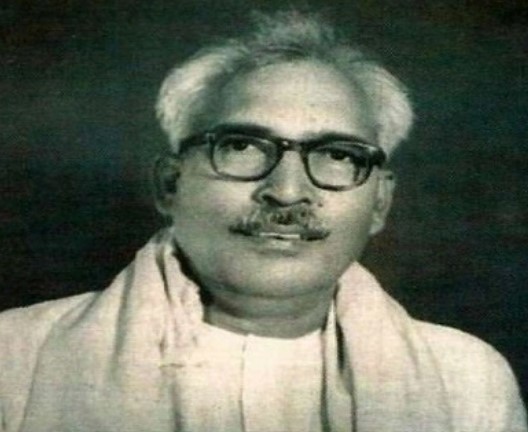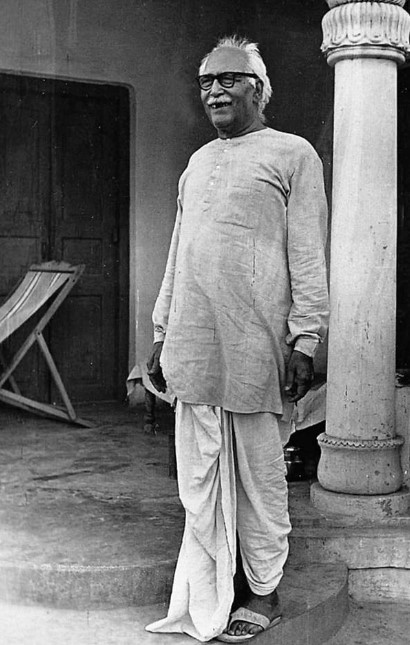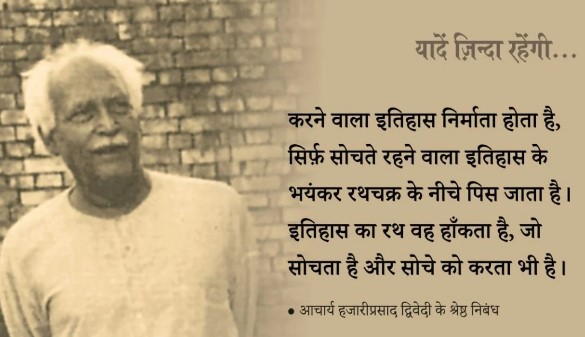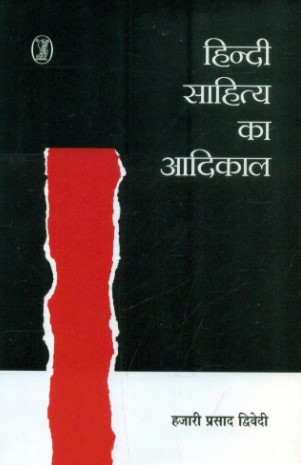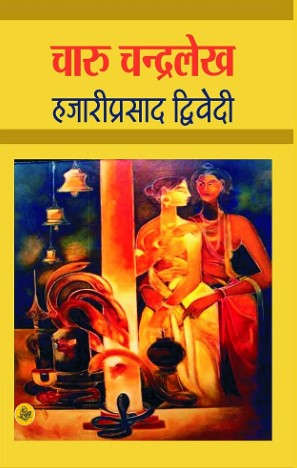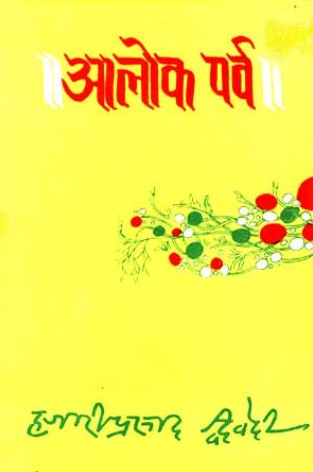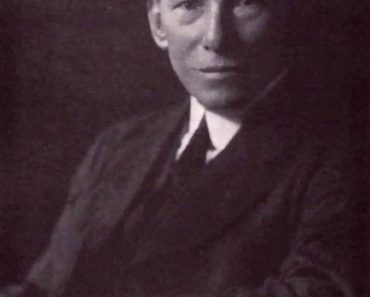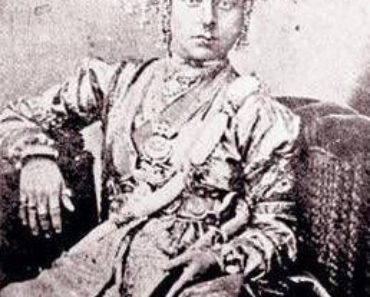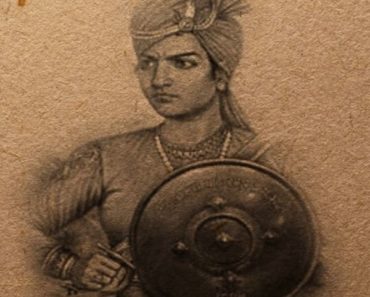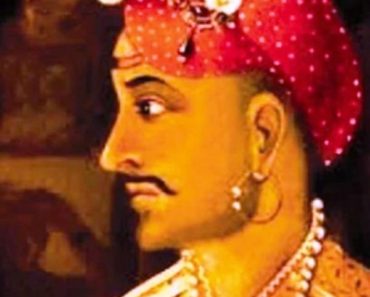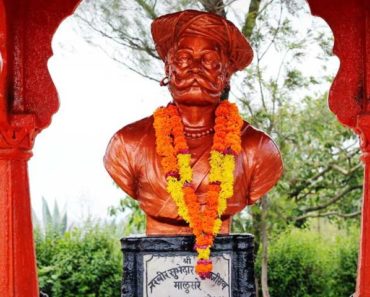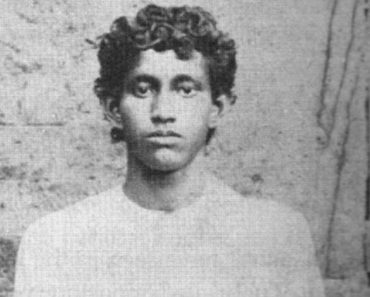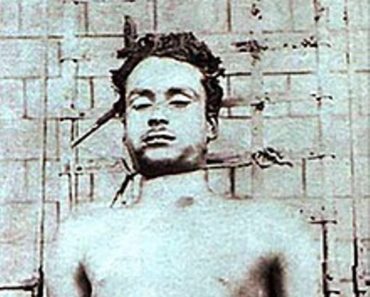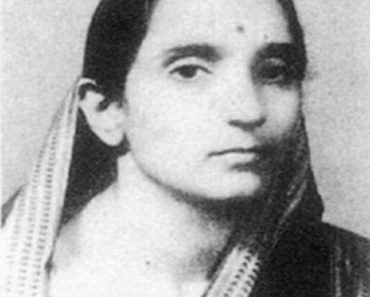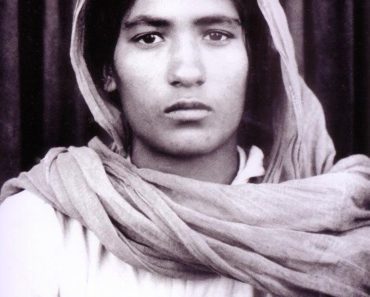Hazari Prasad Dwivedi (1907 – 1979) was a famous Indian poet and Hindi writer. He wrote many remarkable novels, poems, and essays such as Banbhatt Ki Aatmkatha, Sahitya Ki Bhumika, Nakhoon Kyon Barhte Hain, Kutaj, and Alok Parva. He is known for conducting historical research on religious movements in medieval India with a particular focus on Kabir and Natha Sampradaya. He is also well-known for his writings on the historical development of Hindi literature in India.
Contents
Wiki/Biography
Acharya Hazari Prasad Dwivedi was born as Baijnath Dwivedi on Monday, 19 August 1907 (age 71 Years; at the time of death) in village Arat-Dubeka Chhapra, district Ballia, United Provinces of Agra and Oudh, British India. [1]IGNCA [2]Amar Ujala His zodiac sign was Leo. Dwivedi attended his rural school for his primary education and middle school exams. He continued his studies in Jyotisha (astrology) and Sanskrit after completing his intermediate and received degrees in astrology (Acharya) and Sanskrit (Shastri) from Banaras Hindu University in 1930. [3]IGNCA In 1949, he received a Doctor of Literature degree from Lucknow University. [4]IGNCA Hazari Prasad Dwivedi was born into a family that had a reputation for being skilled astrologers. Besides Hindi, he had expertise in several other languages like Sanskrit, Bengali, Punjabi, Gujarati, Pali, Prakrit, and Apabhramsa. Even at a young age, he delved into the literature of these languages. He was an exceptional reader with extensive knowledge. He also used English to study the classics from ancient Greece and modern Europe, becoming well-versed in Western philosophy.
Physical Appearance
Hair Colour: Grey
Eye Colour: Black
Family
Parents & Siblings
His father, Pandit Anamol Dwivedi, was a Sanskrit scholar. His mother’s name was Paramajyoti Devi. He had a brother named Acharya Dr Rama Nath Dwivedi, who was an accomplished Hindi author.
Wife & Children
In 1927, Hazari Prasad Dwivedi got married to Bhagwati Devi. The couple had children. [5]IGNCA
Caste
Hazari Prasad Dwivedi belonged to the Kayastha community.
Signature
Career
Hazari Prasad Dwivedi’s vast knowledge of traditional languages made him a link between the past and the present. Being a student of Sanskrit and well-versed in the Sastras (scriptures), he brought a new viewpoint to Sahitya-sastra (literary theory). He was highly respected as a great commentator on ancient Indian literary texts.
Professor
In 1940, soon after completing his Intermediate and Acharya examinations in Astrology at Banaras Hindu University, he went to Visva Bharati (Santiniketan) for a teaching job. Hazari Prasad Dwivedi then became a part of ‘Visva Bharati’ and worked there for twenty years. He taught Sanskrit and Hindi while also focusing on research and creative writing. He played a vital role in establishing its Hindi Bhavana and served as the Director of Hindi Bhavan at Visva Bharati from 1940 to 1950. During his time in Santiniketan, he had close interactions with notable figures like Rabindranath Tagore, Kshitimohan Sen, Vidhusekhar Bhattacharya, and Banarasidas Chaturvedi. It is said that he learned the nuances of the Bengali language, the artistic sensibilities from Nandalal Bose, the deep exploration from Kshitimohan Sen, and the gentle yet sharp humour from Gurudayal Mallik. These influences were evident in his later writings. In 1950, Dr Jagannath Prasad Sharma, the department’s professor and chairman, hired Hazari Prasad Dwivedi to work as a reader in the Hindi Department at Banaras Hindu University in Varanasi. He served as a member of the Executive Council at Visva-Bharati University from 1950 to 1953. From 1952 to 1953, he was the President of Kashi Nagari Pracharini Sabha. He also became a member of the General Body and Management Committee of Sahitya Akademi in Delhi. In 1952, he discovered the manuscripts of Nagari Pracharini Sabha in Kashi, and in 1954, he worked as an Inspector of the National Bibliography published by Sahitya Akademi. Dwivedi became a member of the first Official Language Commission, which the Indian government established in 1955, and he served there until 1960.
In 1960, Hazari Prasad Dwivedi became a Professor and Head of the Hindi Department at Panjab University, Chandigarh. He held this position until he retired. Dwivedi made remarkable contributions to Indian creative and critical writings. He had a wide range of interests, and his works were highly respected. Some of his important works in literary history and criticism are “Sahitya ki Bhumika” and “Hindi Sahitya ka Adikala.” Reportedly, these writings later brought a new direction to the history of criticism in Hindi literature.
Hazari Prasad Dwivedi wrote books about religious life in medieval India. Some of these books include “Kabir,” “Madhyakalin Dharma,” and “Sadhana Natha Sampradaya.” His work on the medieval saint Kabir is considered a masterpiece by many readers. It is a well-researched analysis of Kabir’s thoughts, works, and teachings.
Novelist
Hazari Prasad Dwivedi was a renowned novelist known for writing about historical themes and characters. Some of his famous historical novels include “Banbhatt Ki Aatmkatha” (1946), “Anamdas Ka Potha,” “Punarnava,” and “Charu-Chandra-Lekha.”
Essayist
Hazari Prasad Dwivedi was an exceptional essay writer, and he wrote several notable essays. Some of these essays are Kalplata (including “Shirish ke phool” which is in the NCERT Hindi book for class XII), Nakhoon Kyon Barhte Hain (Why do the nails grow), Ashok ke phool, Kutaj, and Alok Parva (Collection). Additionally, he translated numerous works from English and other languages into Hindi. Some of his translations include Prabandha-Chintamani (from Prakrit), Puratan Prabandha, Sangraha Vishva Parichay, Lal Kaner, and “mouthi mar thi hoa mara.”
Later, he founded and edited the Visva-Bharati Patrika in Hindi. Hazari Prasad Dwivedi served as the chairman of the Uttar Pradesh Hindi Academy in Lucknow till 1979.
Awards
- In 1957, Hazari Prasad Dwivedi received the Padma Bhushan Award for his valuable contributions to Hindi literature.
- He received the Tagore Award from Paschim Banga Sahitya Akademi in 1962.
- In 1973, he was honoured with the Sahitya Akademi Award for his collection of essays titled ‘Alok Parva.’
Death
Hazari Prasad Dwivedi died on 19 May 1979 in Delhi after suffering from a brain tumour.
Facts/Trivia
- Indira Gandhi, the former Prime Minister of India, was his student at Shantiniketan.
- In 1930, he earned the title of Shasracharya by studying astrology.
- After 1967, he returned to Kashi Hindu University, where he also served as the Rector for a period of time.
- In 1997, the Government of India issued a stamp in his honour to recognize his contributions to Hindi literature.

